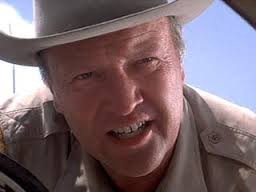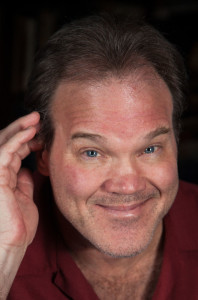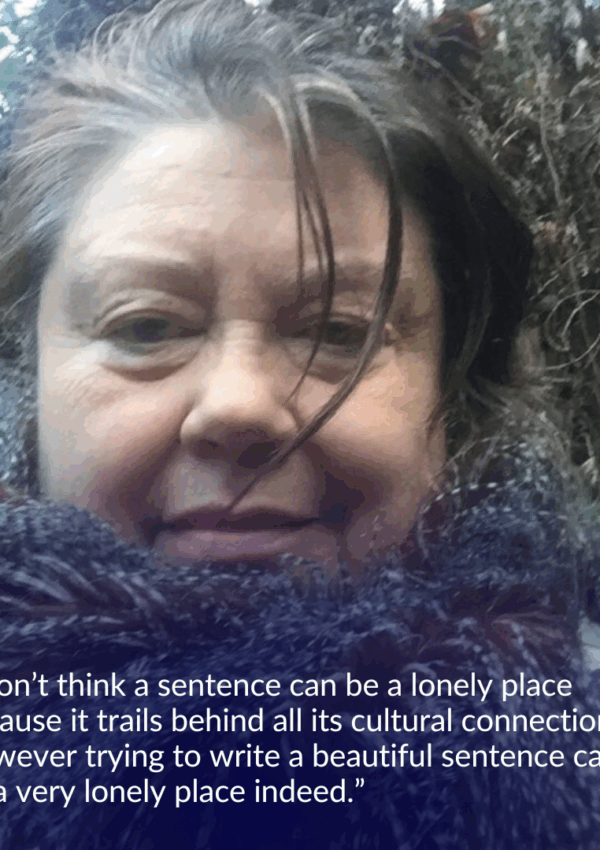When a gifted poet approaches the novel, the results can be compelling, unusual, certainly bizarre; but exactly what you’ll get is hard to imagine.
At the same time I decided to be, or realized I was, a writer, I came across the wildly exhilarating poetry of Atlanta born, James Dickey. He attended my high school in the 30’s, and my chorus director was his track coach on the same field where I’d practiced football thirty years later. While achieving great success in advertising, Dickey carved out and created, through sheer will, backbreaking work and penetrating intellect, skill, and imagination, a new kind of sprawling, wild-headed, dizzying poetry of the senses.
He was about my father’s age, and there were similarities. Both played college football in the south, my father at Georgia Tech and Dickey at Clemson. Both were in the Air Force, where my father had been a P-51 Mustang pilot and Dickey a radio operator in the 418th Night Fighter division in the Pacific. Both were recalled into the Korean Conflict. Atlanta was a smaller place then, and probably they’d encountered each other. My father liked to drink and fight in his early days, and who knows what kind of scraps they might have gotten into, or nearly. My father was a lover of poetry, knew a good bit of it, and would quote it to me often.
After losing my father at 15, at 20 I was searching for my literary father, and hooked up naturally with Ernest Hemingway. There was no better inspiration, instructor, or writing disciplinarian than Hem, but the challenge was learning to write in your own voice and cadence and not get caught up in his infectious style and rhythms.
Then I came across The Collected Poems of James Dickey, and I had another mentor. I read his interview in Playboy where he talked about his aesthetic and major passions: poetry, archery, guitar finger-picking, white water canoeing, alcohol, and more. Here was a guy that spoke my language — not my father — but a literary facet of him, someone who shared my passion for life and language and the mystical things that can exist and be born out of both.
Dickey’s poems were stunning and a wholly new kind of raw physical writing where the reader was totally involved, whether it was crashing down whitewater in a canoe, falling out of an airplane without a parachute, or catching a massively huge shark and dragging it into a house where the giant fish literally destroys the place in a poem called Shark’s Parlor.
He wrote about World War II in the Pacific, the eeriness and brutality of it, in poems like The Firebombing, where the flyer never sees the mayhem and misery of the incendiaries he drops from the sky, only the lit-up beauty of it.
Like Hemingway’s, it was not fussy, stuffy, intellectual writing, but it was brilliant and visual, muscular and physical, carrying you on mind-bending journeys you’d never imagined, that you felt you’d fully lived through.
Dickey wrote about woods, rivers, the animals in them, seeing their world through their eyes. The Heaven of Animals took you to a place where every living creature experiences transcendence and a sharpening of senses into its own spirit afterlife. Cherrylog Road carried you into a sweltering hot country junkyard sexual encounter where a couple meet secretly and screw in a chopped-down jalopy with crickets and cicadas churning around them.
In the Playboy interview Dickey talked about his just released novel, Deliverance, and I got hold of it quickly. He’d spent twelve years on it, he said, while writing three other books of poetry. One of them, Buckdancer’s Choice, won the National Book Award for poetry in 1966.
From the first paragraph of Deliverance I was captivated. The power of suggestion of what was coming was essential and uncanny, as four suburban Atlanta men discuss going up into the North Georgia hills to run the most dangerous whitewater in the state. To take a three day break from their cushioned Buckhead routine of PTA meetings, golf courses, “shopping centers,” and country clubs. This foundation of smooth and deadening inconsequentiality was set against the totally alive danger of immersing themselves into wild mountain country, a raging river, and a primal, mysterious hillbilly culture alien to flabby city boys, except for Lewis, an in-shape athlete, archery champion, and survival freak.
And the most headlong survivalist novel of its, or any other, time was born. Following it came a flood of movies and books trying to capitalize off of the same formula, but none could touch this one for depth of physical, emotional, and psychological experience, and nail-biting tension. Not just because of the story itself, but because of the one writing it.
Part of the beauty and magic of the novel is that Dickey had never written one before, had always worked with condensed forms, though many of his poems were narrative and long. He was in a sense recreating the form with a rarefied poet’s sensibility. Early drafts of Deliverance, he said, were written in an overwrought, tour de force, poetic, cake-walking style, which his instincts revised and evolved. What he ended up with was the highly descriptive narration of a skilled, observant, and philosophical everyman, you and me, going into this harrowing wilderness experience, living through it and telling it back over beers.
He draws us in, engages us, carries us along, gives us the sense we’re fighting through this ordeal with him. There is no distance between us and the narrator. It’s very like a confessional in places, as if he had to unburden himself with the harrying events he was caught up in and forced to resolve.
It is a masterpiece of immersion into the elements, into the psyches of his friends, and of the perverted brutality of the mountain characters they encounter. The river is a major player in the book and has a life of its own, representing eternity, life and death. Dickey’s detailed descriptions of it are seen and felt in every part of the reader’s senses.
After the narrator, Ed, and Lewis have a long, in-depth discussion of the coming breakdown of society when survival will be all they have, Ed is the one forced to save them from the uncaring beast of predatory mankind, after one of their party is sodomized at gunpoint. Much was made of this prurient element; as if it were some gratuitous, sensationalist stunt. But it is exactly this unthinkable act that sets up the “moral imperative,” as Dickey described it, where civilized men are forced to deal with and do battle with an uncivilized, evil savagery in an alien world.
What sets Deliverance apart from the plethora of survival stories that would follow it, is the highly perceptive, uncannily fascinating, down to earth telling of it by someone you feel you know, who lets you into his life and dreams and nightmares, who is, as I said, every single one of us.
You wouldn’t know it was the masterful poet, James Dickey, talking to you. And that is the ultimate ingenuity of his book, I believe. The poet is there and narrating to you, but you don’t know it’s him. You just know you’re carried along in a psychological current as sweeping as the pounding rapids he’s describing, and you can’t let loose until you come out the other end. It is some of the most riveting writing I’ve ever read, even now, forty-five years later.
 Dickey was not only hired to write the script for the movie that was made of Deliverance, starring Burt Reynolds, Jon Voight, Ned Beatty, and Ronnie Cox, for which he was nominated for an Academy Award in 1973. He also played the cagey old country Sheriff Bullard at the end of the film, in one of the finest untrained performances in this or any other movie. He was perfect in it, and seemed to embody the spirit of the role in a way only the creator of the story could have. He was later kicked off the set for interfering with production and badgering the director and actors, I’m sure because of an urgency he felt for the material and what they were doing with it.
Dickey was not only hired to write the script for the movie that was made of Deliverance, starring Burt Reynolds, Jon Voight, Ned Beatty, and Ronnie Cox, for which he was nominated for an Academy Award in 1973. He also played the cagey old country Sheriff Bullard at the end of the film, in one of the finest untrained performances in this or any other movie. He was perfect in it, and seemed to embody the spirit of the role in a way only the creator of the story could have. He was later kicked off the set for interfering with production and badgering the director and actors, I’m sure because of an urgency he felt for the material and what they were doing with it.
Hearing about his irascible and scorching nature and reputation, his bouts with alcohol, I chose to keep my distance from Dickey and learn only from his writing and interviews. I didn’t want this giant and caustic figure discouraging me or my work in any way. I was hardheaded too about blazing my own trail. When his big experimental novel, Alnilam, came out in 1987, I ran down to the Atlanta bookstore where he was signing books, bought one and brought it to him in line.
“What would you like me to say?” he said, opening the book with his pen, looking down at it. I’d like you to write, “I hope you find the unfindable,” I said, and after a few seconds he looked up quickly and roared with laughter, grinning that big wild southern grin. “I hope you find the unfindable!” he said, laughing and nodding, “Yeah, yeah, I like that! That’s great!” he said, writing and signing it. I knew it was something he’d appreciate.
Aside from a poetry reading of Dickey’s I attended a few years earlier, that was the only personal encounter I had with him, and probably it was better that way. Reading his letters lately, I find again a very complex, well read, in ways tortured, but in just as many ways enraptured, man of letters, with a rawly independent intellect, who gave a tremendous lot to poetry, aesthetic thought, interviews, criticism, and a group of unusual novels.
But the best of these for me by far is the one that made many lists of best American modern novels, called Deliverance. If you haven’t read it, I envy you, because I promise you, you have something to look forward to.
 Ron Clinton Smith is a writer of poems, stories, songs, novels, and screenplays, and an actor who appeared in such films and TV as We Are Marshall, The Mist, Parental Guidance, True Detective, and Hidden Figures. He began his acting career in standup comedy, moved to theater, and later to film and television. In 2012 he published the literary novel, Creature Storms. His story, “A Pilgrimage to Dennis Hopper,” first appeared in the River Teeth Journal of Narrative Nonfiction, was nominated for the Pushcart Prize, and was listed as one of the most notable essays in Best American Essays, 2015. He’s published stories in Upstreet Magazine, Novella T, 2 Bridges Review, and Zoetic Press/NonBinary Review. He balances his time between writing and film acting.
Ron Clinton Smith is a writer of poems, stories, songs, novels, and screenplays, and an actor who appeared in such films and TV as We Are Marshall, The Mist, Parental Guidance, True Detective, and Hidden Figures. He began his acting career in standup comedy, moved to theater, and later to film and television. In 2012 he published the literary novel, Creature Storms. His story, “A Pilgrimage to Dennis Hopper,” first appeared in the River Teeth Journal of Narrative Nonfiction, was nominated for the Pushcart Prize, and was listed as one of the most notable essays in Best American Essays, 2015. He’s published stories in Upstreet Magazine, Novella T, 2 Bridges Review, and Zoetic Press/NonBinary Review. He balances his time between writing and film acting.



Excellent!
I believe Ron Clinton Smith has played that country sheriff role a couple of times. At first glance I thought it was RCS and not Dickey up there. Great read, Ron.